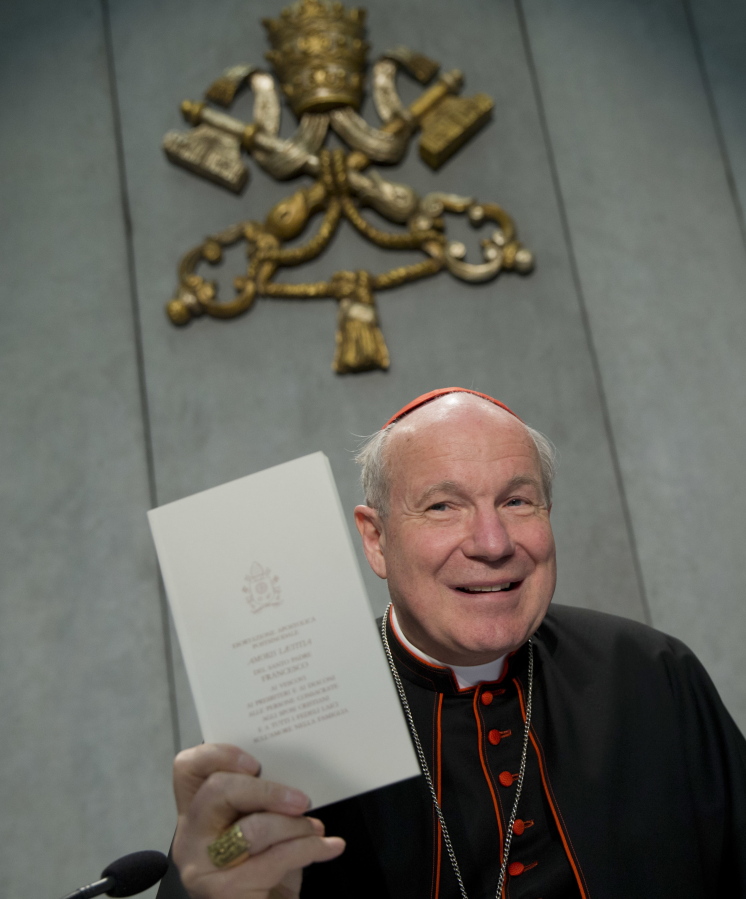VATICAN CITY — The Vatican is striking back at conservative critics of Pope Francis’ landmark document on family life, ratcheting up its defense of the pope with new vigor as bishops begin implementing the document around the world.
The Vatican newspaper L’Osservatore Romano on Wednesday carried a lengthy essay by an Italian Catholic historian insisting that Francis’ “The Joy of Love” was absolutely in line with his predecessors and church doctrine on the thorny issue of whether divorced and civilly remarried Catholics can receive Communion.
Earlier this month, the Vatican-approved magazine La Civilta Cattolica ran an interview with Cardinal Christoph Schoenborn in which the Vienna archbishop pointedly rejected conservative claims that Francis’ work didn’t count as an authoritative teaching document.
Both articles upped the ante in the increasingly divisive theological and ideological battle sparked by “The Joy of Love,” and were published on the eve of Francis’ trip to Poland, where the Jesuit pope will symbolically deliver the document to the deeply conservative Polish church at a youth rally next week.
When it was released in April, “The Joy of Love” immediately sparked controversy because it opened the door to civilly remarried Catholics receiving Communion.
Church teaching holds that unless these divorced and remarried Catholics obtain an annulment — a church decree that their first marriage was invalid — they cannot receive the sacrament, since they are seen as committing adultery.
Francis didn’t create a churchwide pass for these Catholics, but suggested — in vague terms and strategically placed footnotes — that bishops and priests could do so on a case-by-case basis after accompanying them on a spiritual journey of discernment.
The conservative criticism was swift.
American Cardinal Raymond Burke, a figurehead for archconservatives who was removed by Francis as the head of the Vatican’s supreme court, insisted that the document wasn’t part of the church’s teaching magisterium but rather was a personal reflection on meetings of bishops about family matters.
“The personal, that is, nonmagisterial, nature of the document is also evident in the fact that the references cited are principally the final report of the 2015 session of the Synod of Bishops and the addresses and homilies of Pope Francis himself,” Burke wrote in the National Catholic Register.
Schoenborn rejected Burke’s claim in his interview with Civilta Cattolica.
The document, Schoenborn said, “is an act of the magisterium that makes the teaching of the church present and relevant today.”



